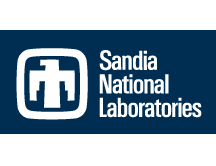IBCTR

Website : http://www.sandia.gov/Contact us :7011 East Avenue
CA Livermore
United States
IBCTR
International Biological and Chemical Threat Reduction
Countering biological and chemical threats across the globe
Sandia National Laboratories develops innovative, sciencebased
solutions to the most challenging national and global
security problems.
Sandia’s Center for Global Security and Cooperation reduces
terrorism and WMD proliferation threats to US national
security through global technical engagement.
The International Biological and Chemical Threat Reduction
(IBCTR) program, a division of Sandia’s Center for Global
Security and Cooperation, reduces biological and chemical
threats by promoting safe, secure, and responsible use
of these agents. IBCTR introduces sustainable, robust,
and affordable solutions that are tailored to the needs of
specific regions and facilities.
By using advanced technical resources, expertise, and a
systems approach, IBTCR works to strengthen capacities
to safely, securely, and responsibly detect, handle, and
control dangerous biological and chemical agents. Actively
engaged in countering these threats since before the 2001
anthrax attacks, IBCTR is regarded as the nation’s leading
expert in assessing and managing the risks from biological
and chemical threats around the world.
IBCTR Goals
• Promote the responsible use of biological and chemical
agents, equipment, and expertise globally
• Improve understanding and management of the risks
associated with accidental and deliberate misuse of
biological and chemical agents
• Encourage global partnership and adherence to
international risk management standards
Global Engagement
IBCTR, in its effort to improve global risk management,
has current or previous engagements with dozens of
countries. By interacting with US agencies, partner country
governments, and other international collaborators, IBCTR
develops strategies that meet local, regional, and global
needs. Through training workshops, facility walkthroughs,
tabletop discussions, and face-to-face interactions, IBCTR
strengthens the world’s risk management capacity for
biological and chemical agents.









